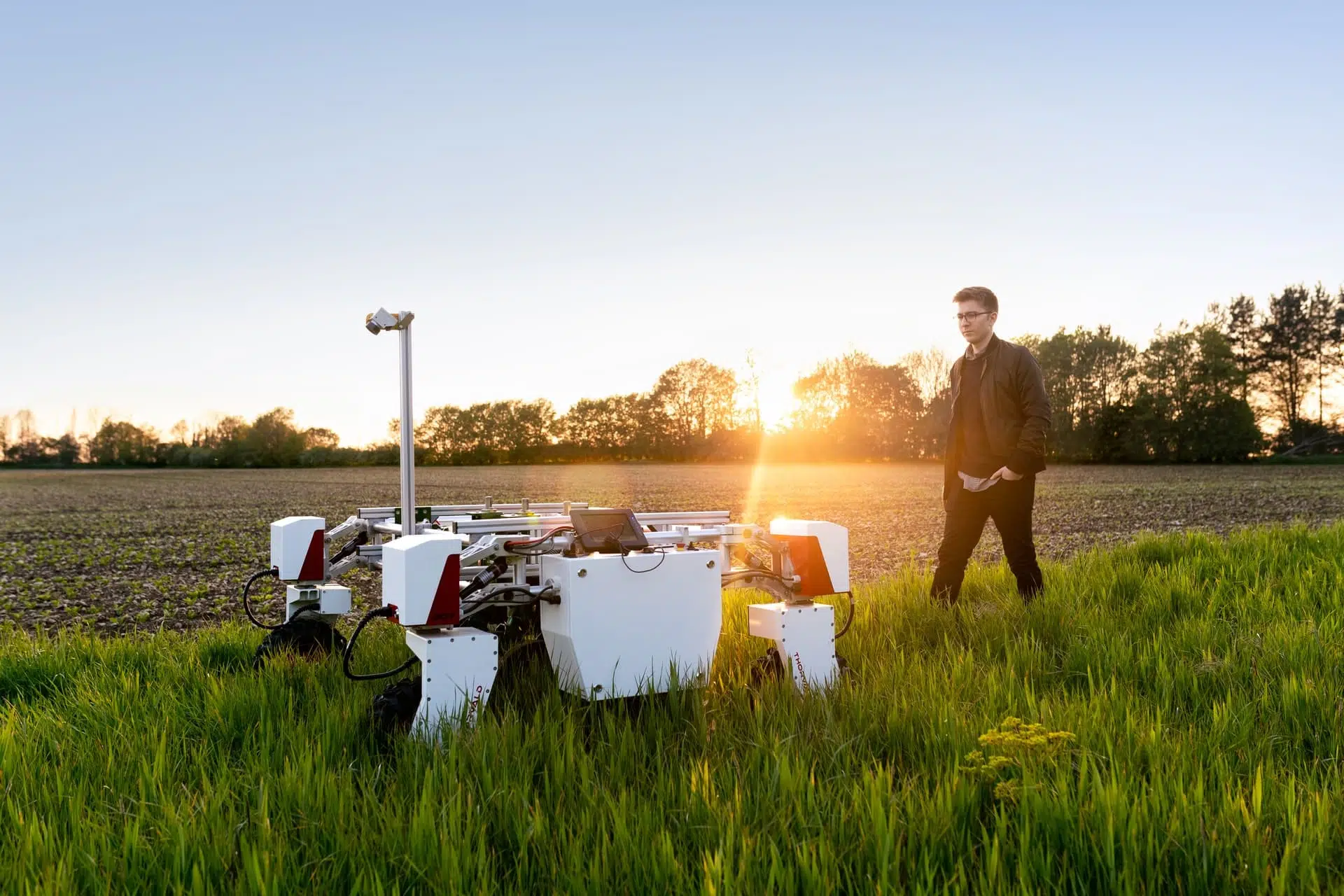

Regenerative tourism is positioned at the intersection of economic growth, nature conservation, and community resilience, with 50% of global tourism being coastal. While hospitality leaders recognize the market's potential, many express the need for more data and clarity to confidently engage in this evolving landscape. The report uncovers real-world case studies and corporate use cases that showcase successful regenerative practices, yet highlights significant barriers to widespread adoption. Curious about how regenerative tourism can reshape the future of travel and investment? Discover the insights, challenges, and opportunities that could redefine your understanding of sustainable tourism in this comprehensive report.
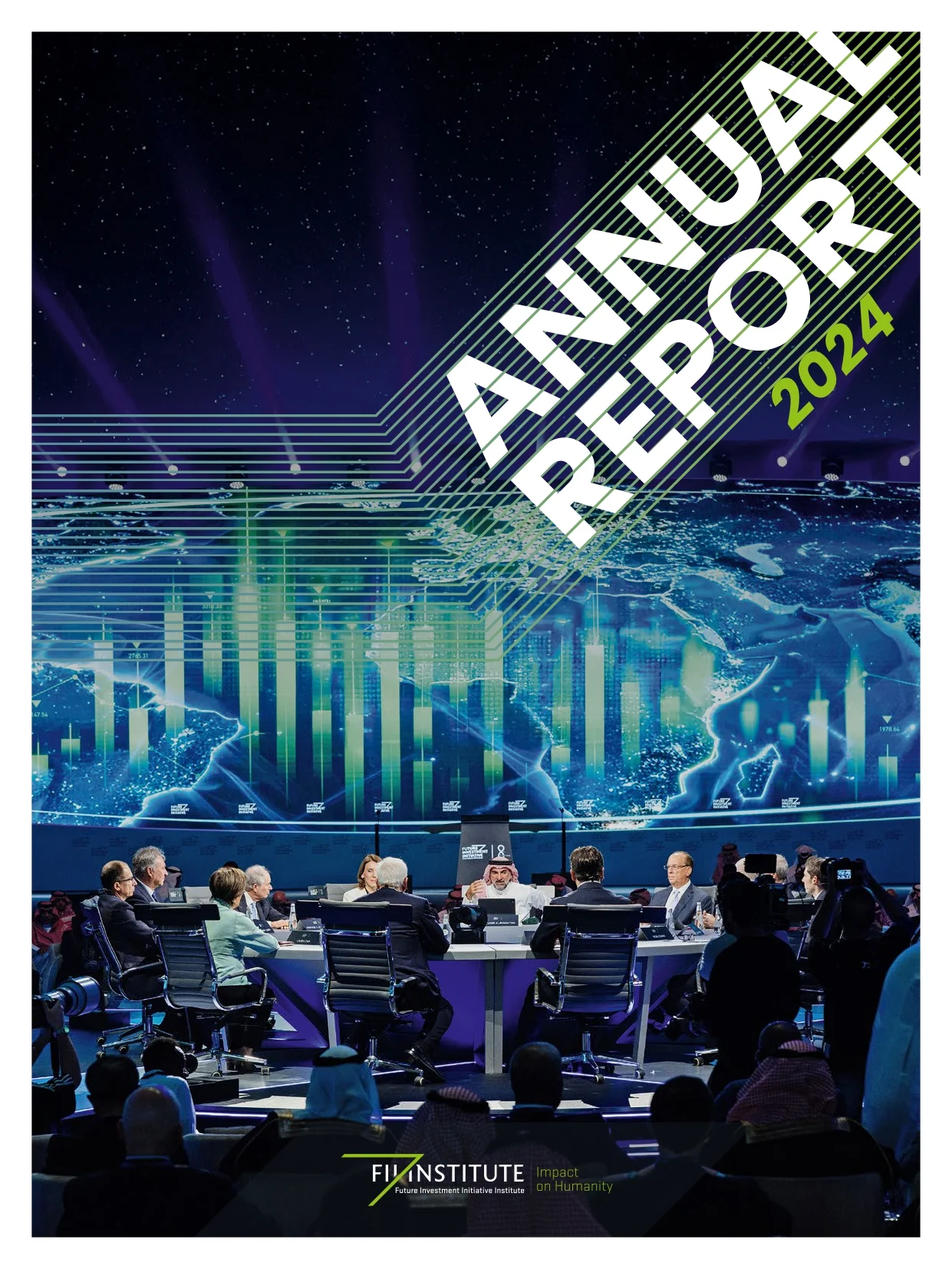
The FII Institute's Annual Report 2024 highlights its unwavering commitment to creating a sustainable future through impactful initiatives.
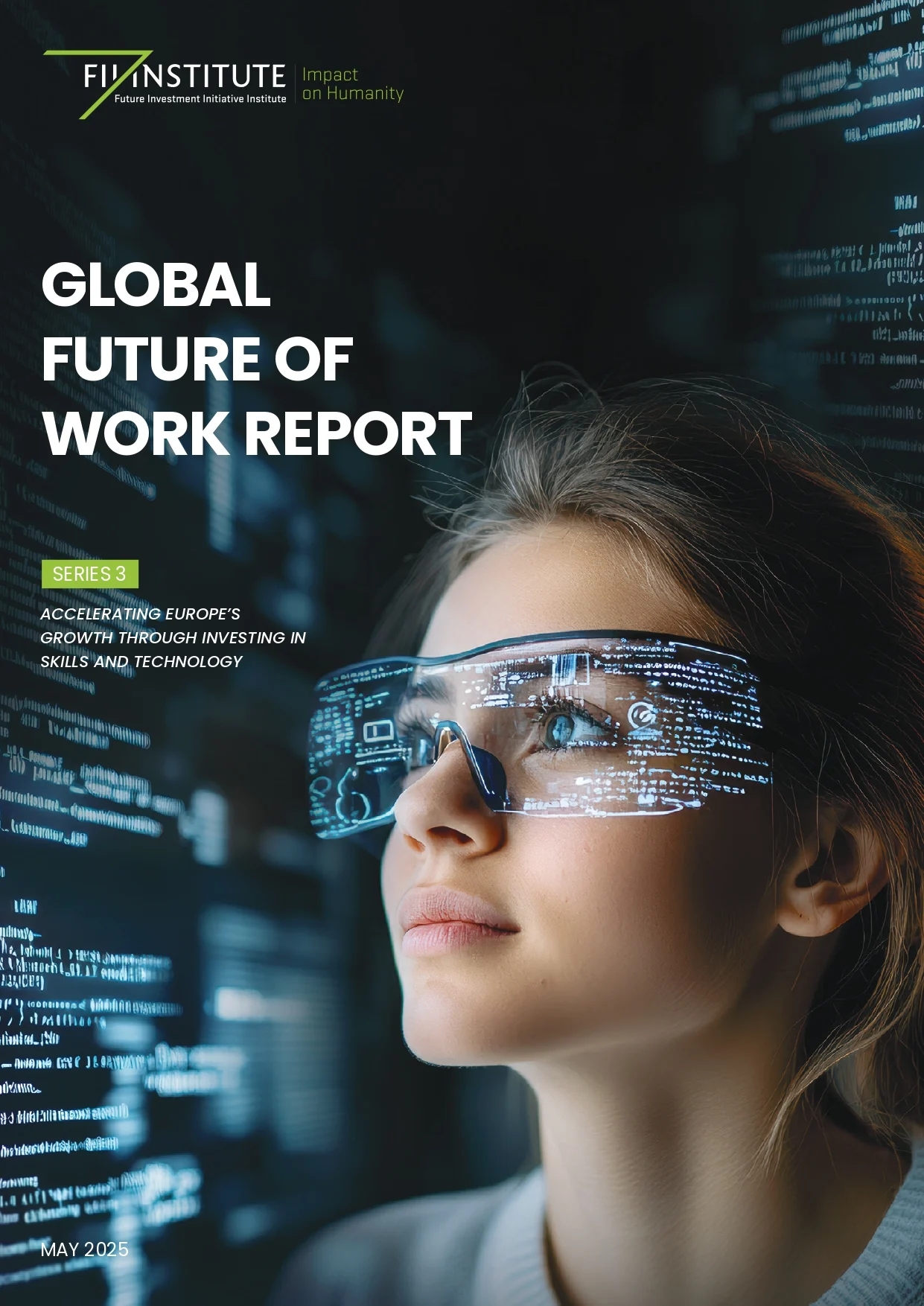
The FII Institute proudly announces the launch of the third edition of the Global Future of Work Report in the special edition of the FII PRIORITY Europe Summit. This third edition delves into the labor markets of Europe, encompassing the 27 EU member states and Norway, while exploring the influence of advanced technologies on the future of work. The report highlights key challenges in technology adoption, emerging skills demands, and the need for adaptable education systems, providing actionable insights to foster growth and develop future-ready labor markets.
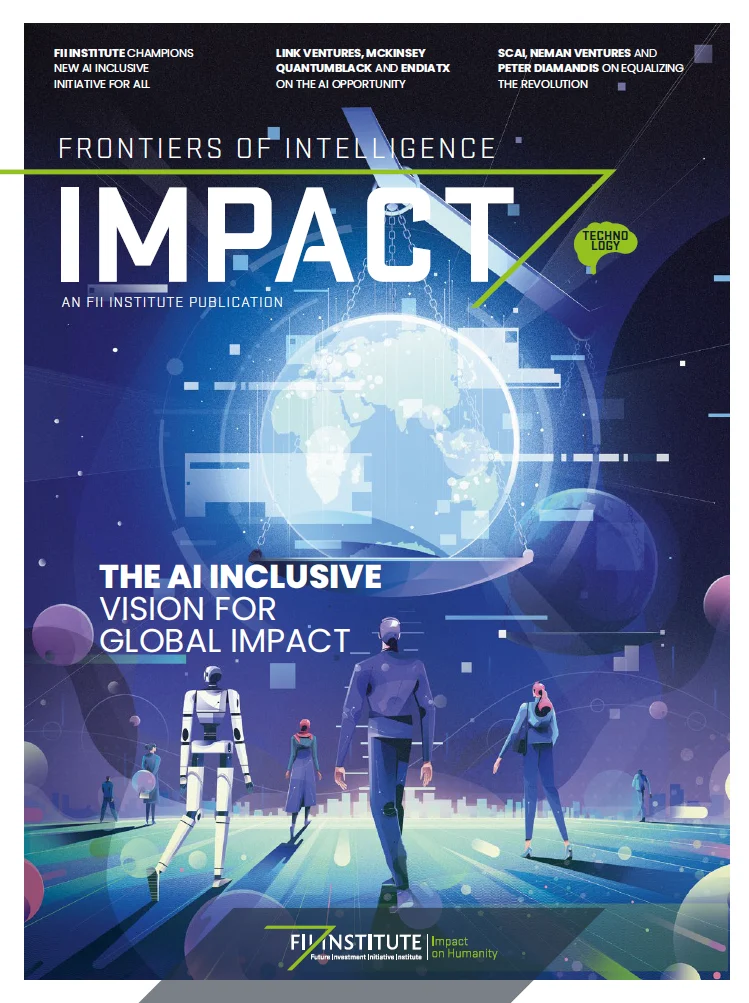
The FII Institute's latest impact report emphasizes the importance of inclusivity in the AI revolution, advocating for equitable benefits across all levels of society. It outlines the AI Inclusive initiative, which aims to address societal challenges through collaboration, innovation, and knowledge exchange. The report highlights the potential of AI to drive economic growth and social impact, particularly in emerging markets, while stressing the moral imperative of ensuring that advancements in technology do not leave any community behind.
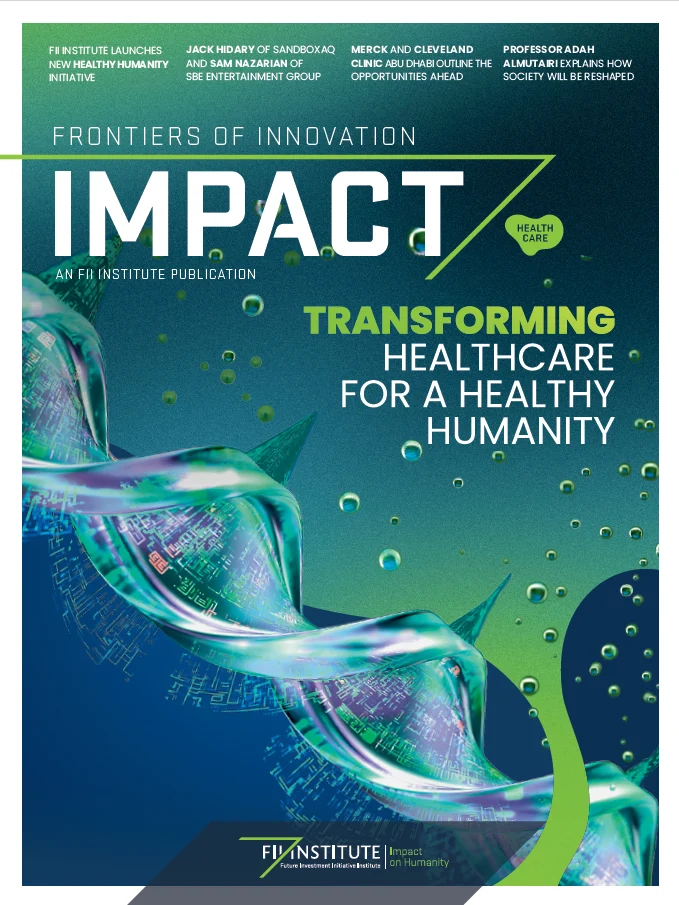
The FII Institute's Healthy Humanity initiative emphasizes the urgent need for preventive healthcare, innovation, and equity to address global health challenges. By harnessing advanced technologies like AI and quantum computing, the initiative aims to enhance early disease detection, improve access to diagnostics, and promote healthier lifestyles, ultimately benefiting economies and societies.
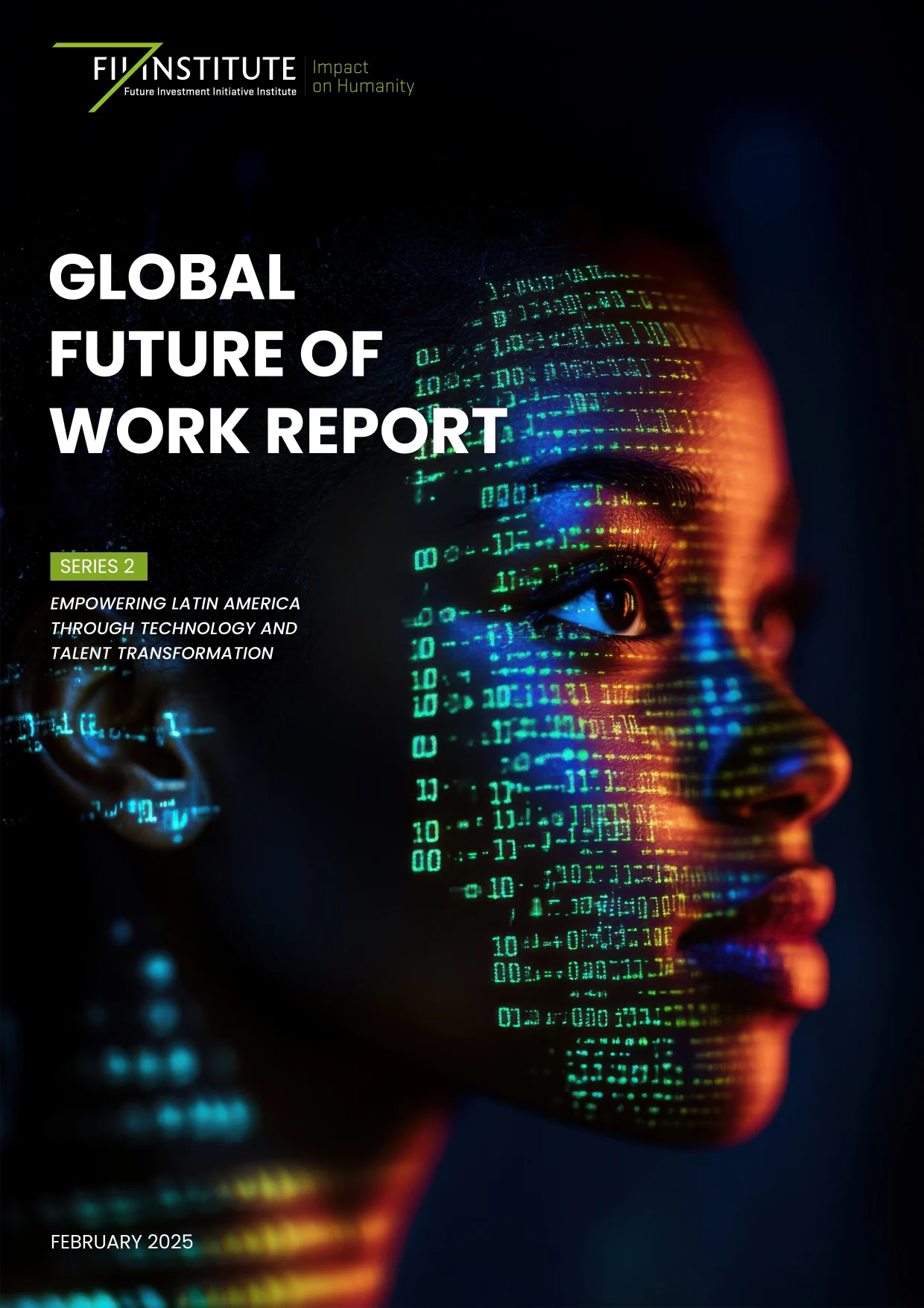
The Global Future of Work Report | Series 2 provides an in-depth analysis of 19 Latin American and Caribbean countries, alongside the United States and Canada. Drawing from primary research across six Latin American nations, the U.S., and Canada, the report highlights Latin America’s declining economic momentum and widening productivity and human capital gaps compared to its northern neighbors.
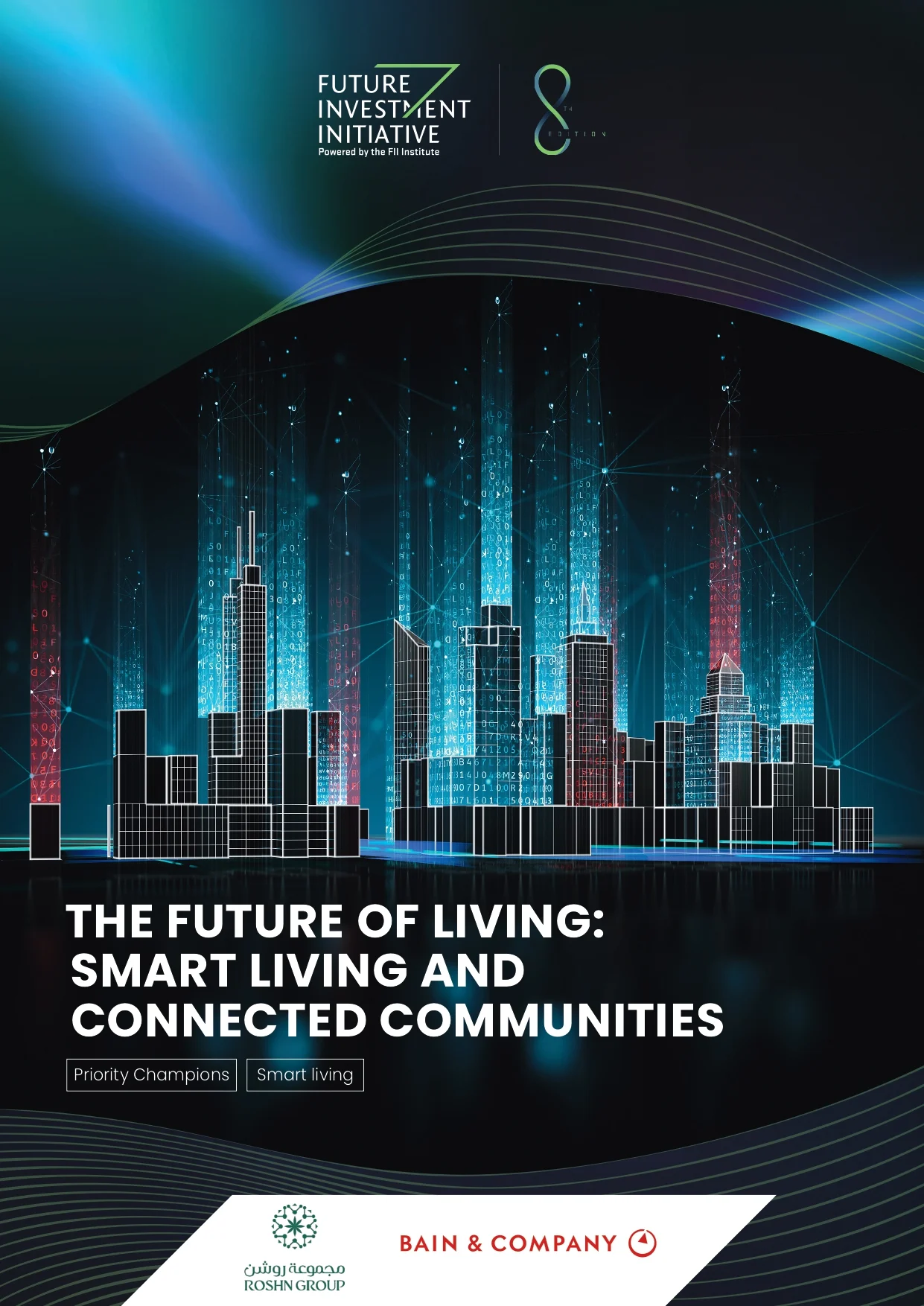
This priority champion publication in collaboration with Roshn Group and Bain & Company delves into the transformative potential of smart living and connected communities, highlighting the integration of advanced technologies to enhance comfort, efficiency, and sustainability. It addresses current industry challenges and behavioral trends, offering strategic insights to accelerate the adoption of innovative solutions. By exploring case studies and frameworks, this work sheds light on the future of urban living, emphasizing the importance of human-centric design and community engagement in creating sustainable environments.

Industry 5.0 marks a shift beyond technological adoption, focusing on individual empowerment, human-centricity, personalization, decentralization, resilience, sustainability and transparency. The priority champion report in partnership with Franklin Templeton and Oliver Wyman discusses the transition to Industry 5.0, emphasizing individual empowerment, human-centricity, and sustainability, while highlighting the evolution of investment management through technological advancements and decentralized […]
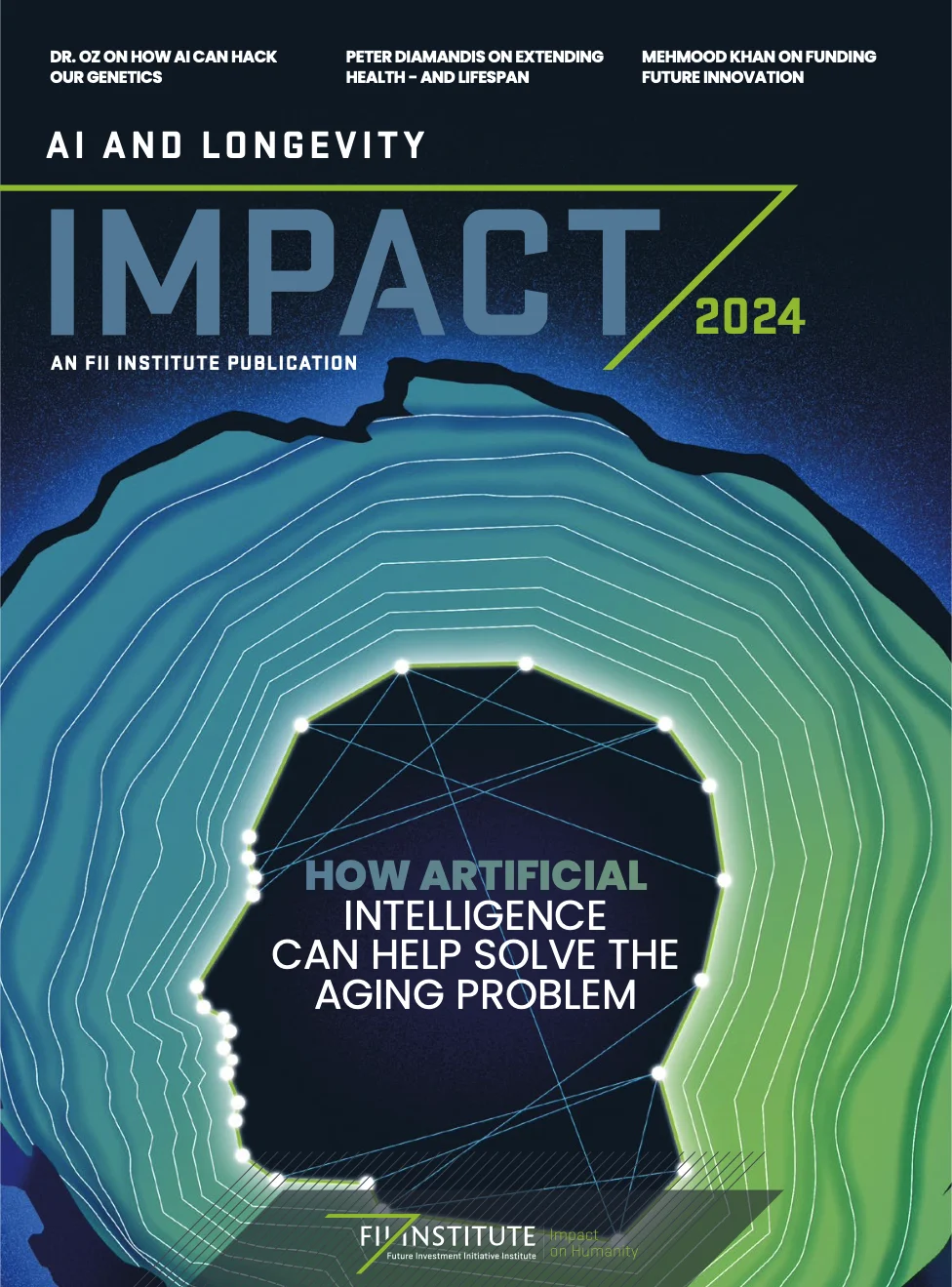
The AI & Longevity Impact report highlights the transformative role of AI in healthcare, emphasizing its potential to enhance drug discovery, personalize medical treatments, and improve understanding of complex biological systems.
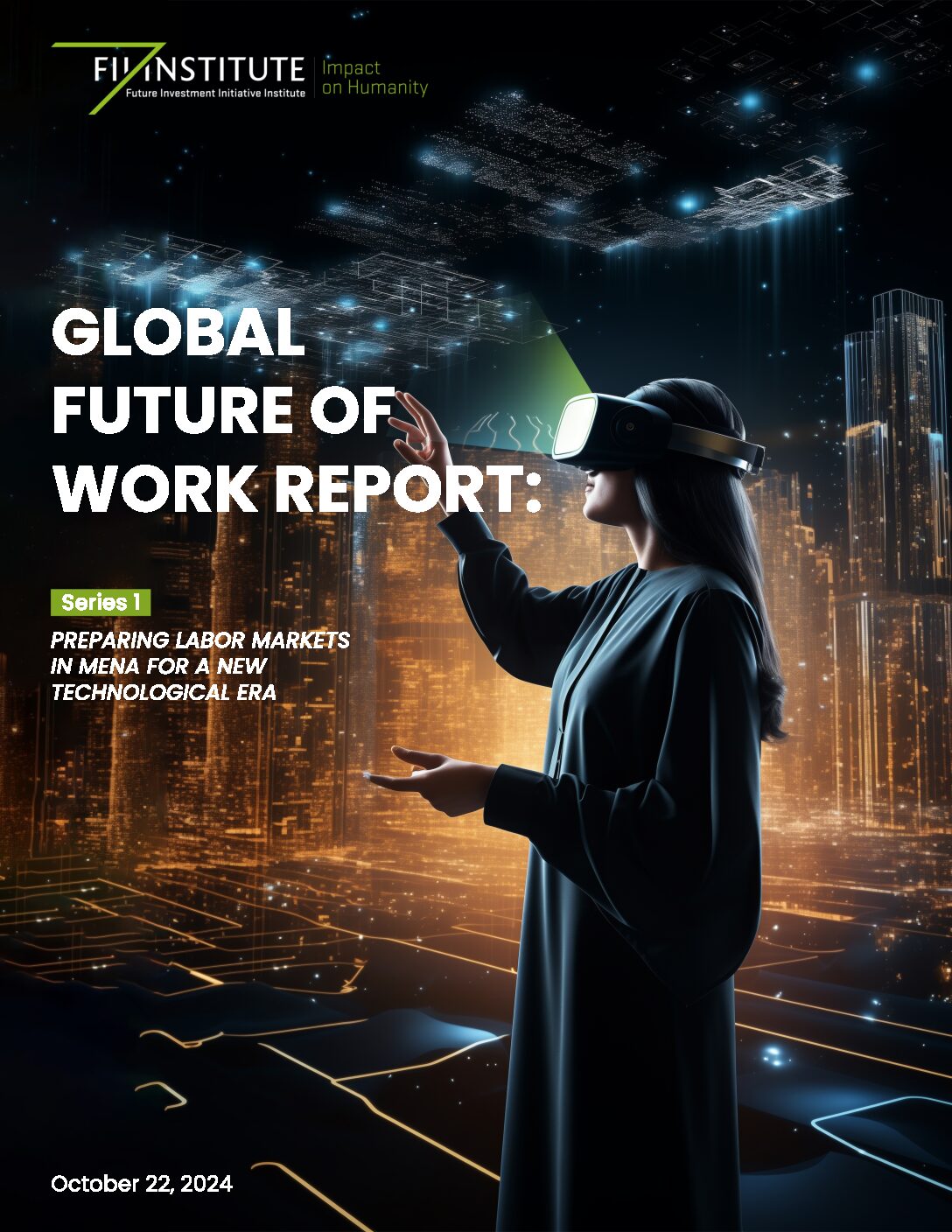
FII Institute announced its Global Future of Work Compass which aims to identify the risks and opportunities faced by companies around the globe. As a first phase, a survey was conducted across 9 MENA countries to assess the region's technological readiness.
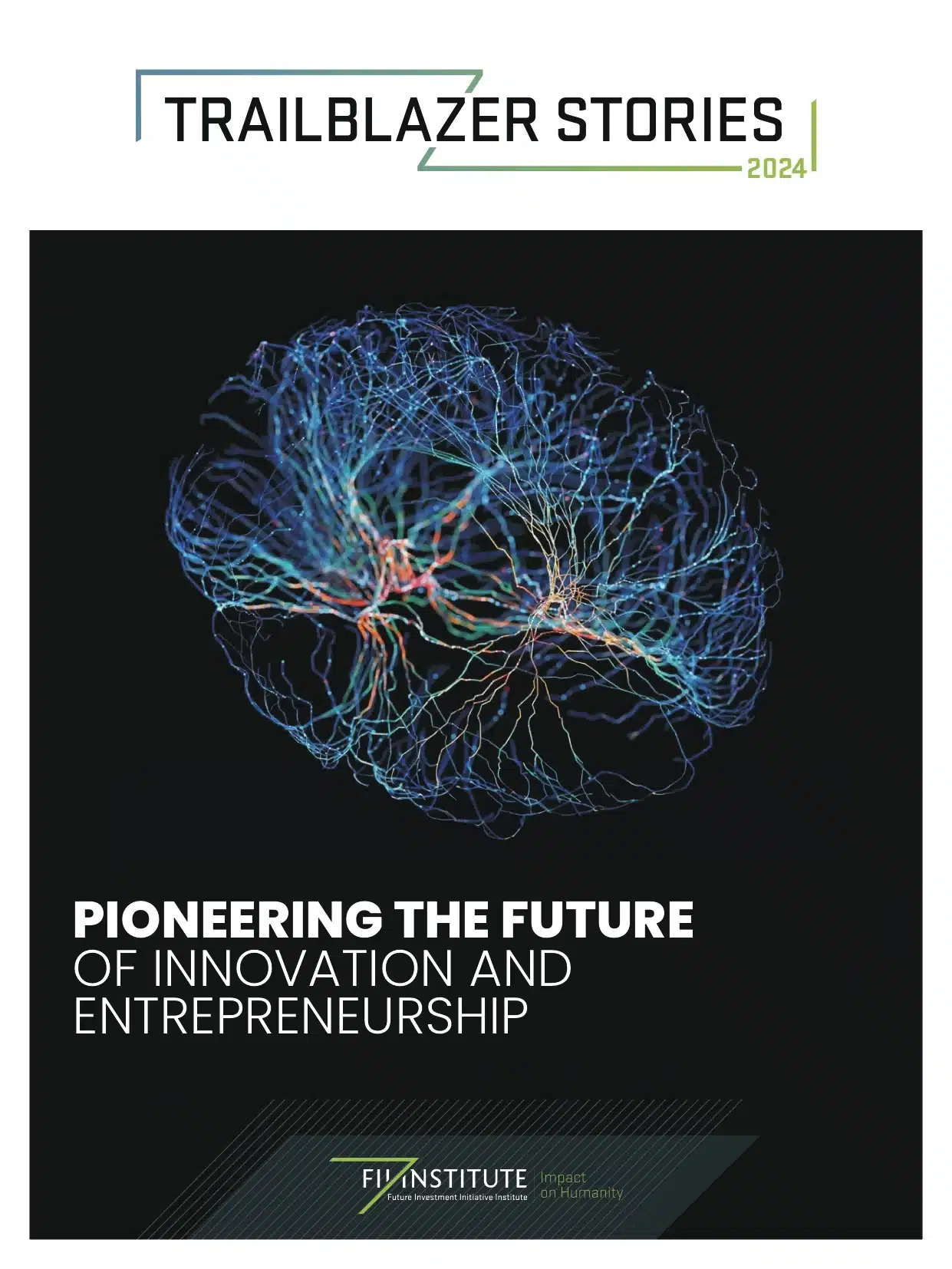
Discover the groundbreaking "Trailblazer Stories" publication, where visionary startups are reshaping our world by tackling some of the most pressing global challenges.
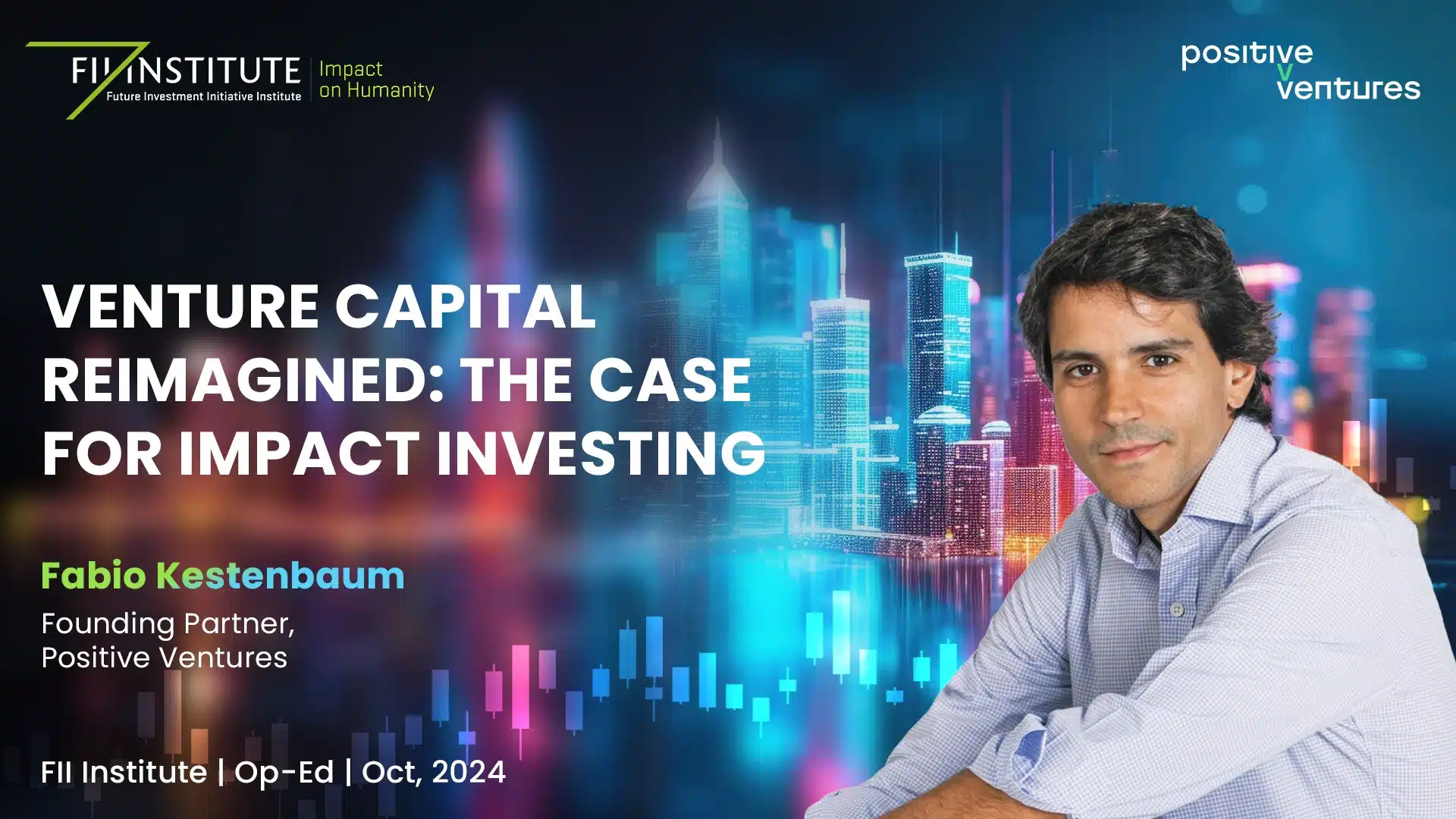
Discover how Positive Ventures, led by Founding Partner Fabio Kestenbaum, is revolutionizing venture capital through impact investing.
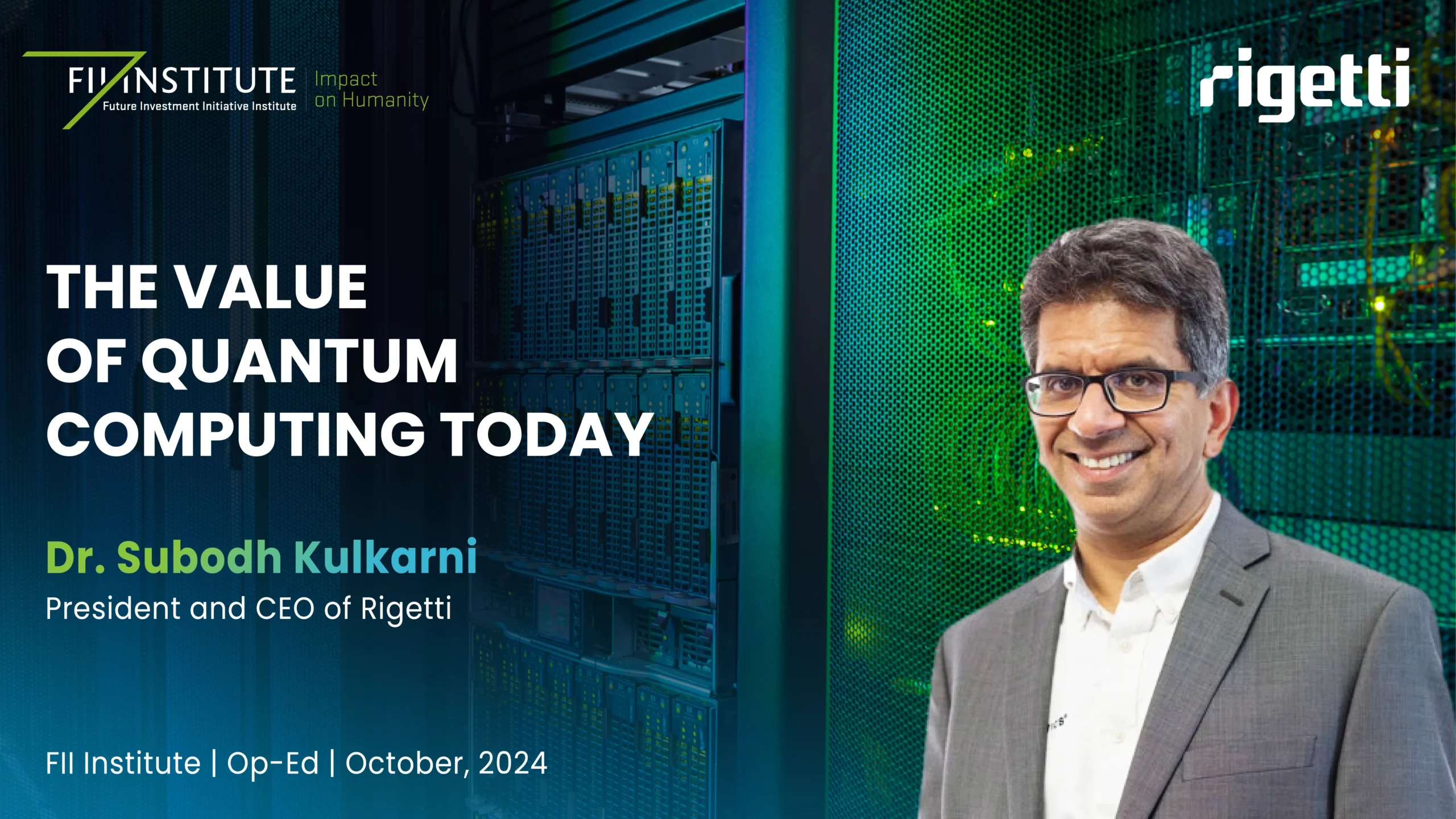
The oped piece sheds light on the urgent need for investment in quantum technology and workforce development, as well as the importance of collaboration between academia, government, and industry to harness quantum computing's capabilities effectively.
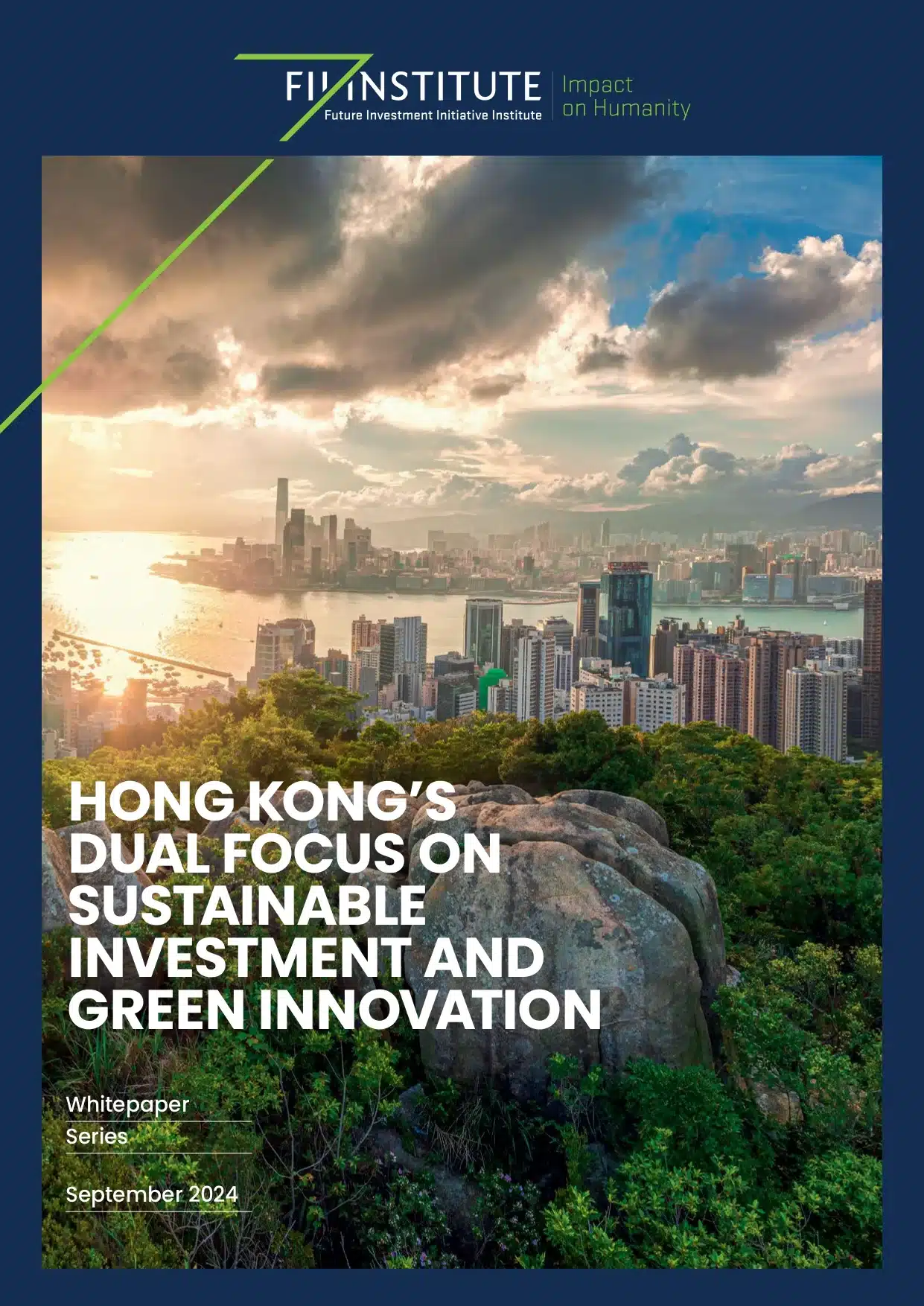
Explore our latest whitepaper, "Hong Kong’s Dual Focus on Sustainable Investment and Green Innovation," which highlights the city's robust efforts in enhancing its green finance ecosystem.
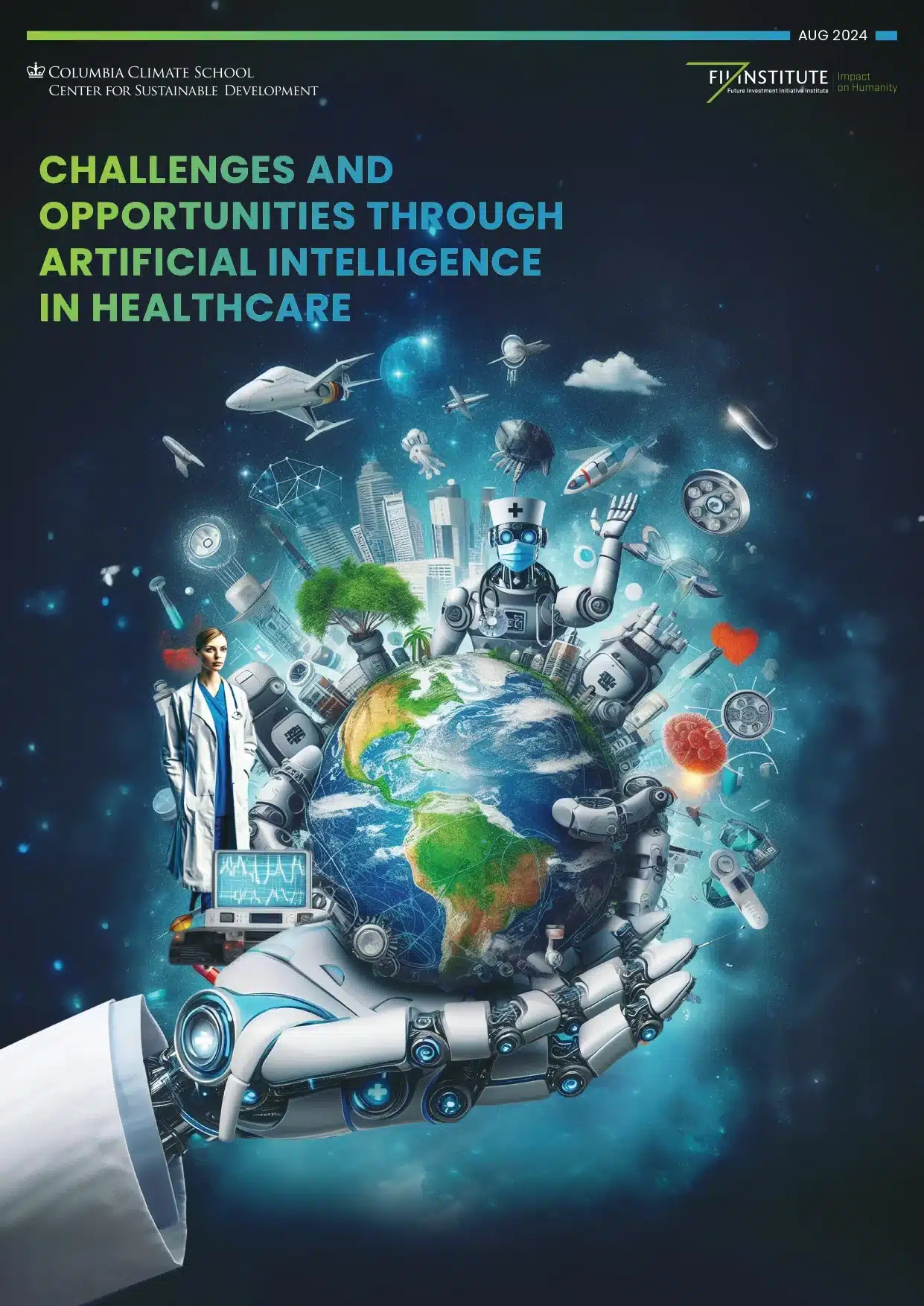
It explores the transformative impact of Artificial Intelligence (AI) in healthcare. The publication delves into the opportunities AI presents for improving diagnostics, personalizing treatments, and enhancing operational efficiency, while also addressing challenges such as workforce shortages, rising costs, and ethical concerns.
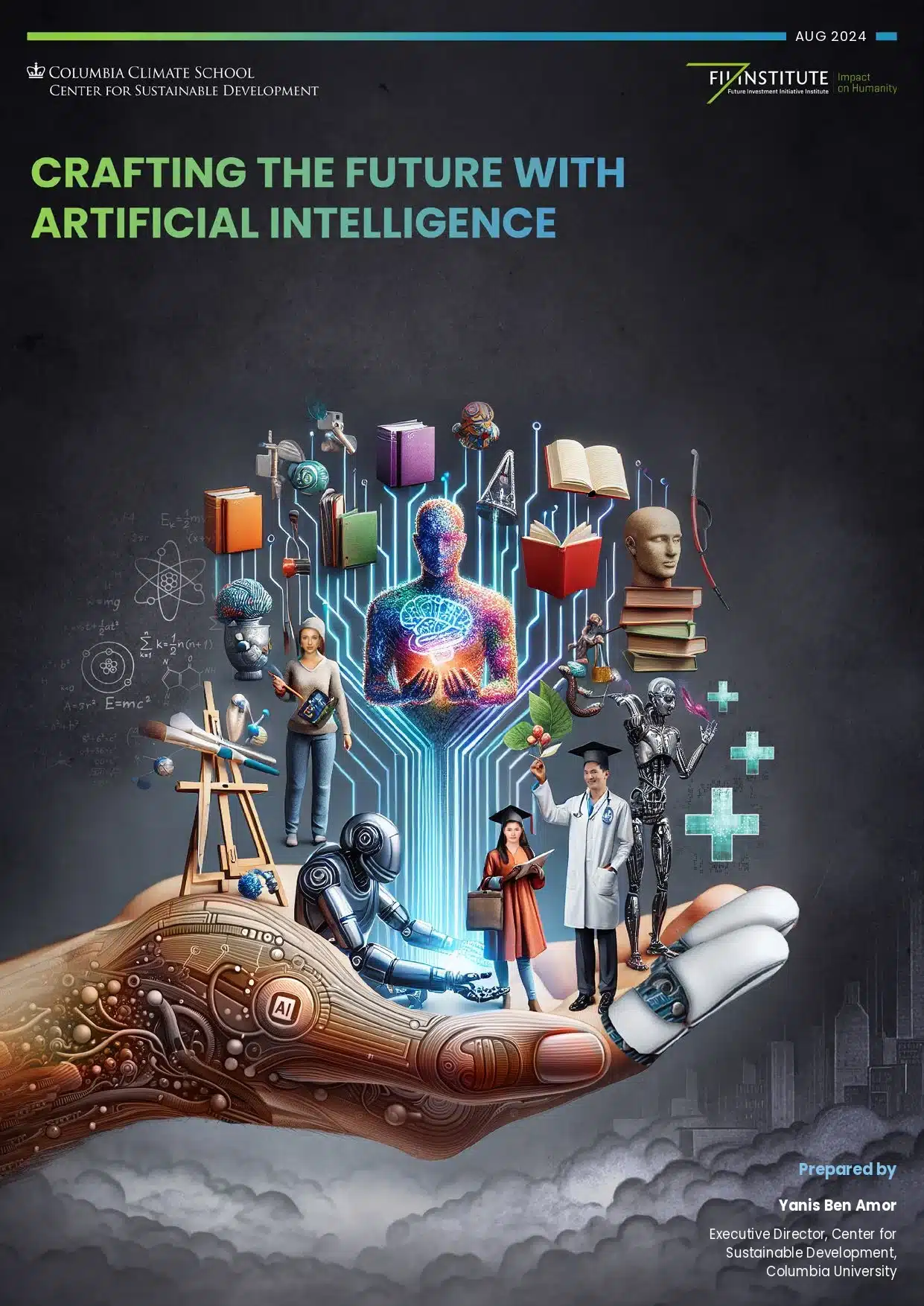
FII Institute launched the second series of publication exploring the profound implications of Artificial Intelligence (AI) in collaboration with Columbia Climate School Center for Sustainable Development on macroeconomics, healthcare, and workforce development.
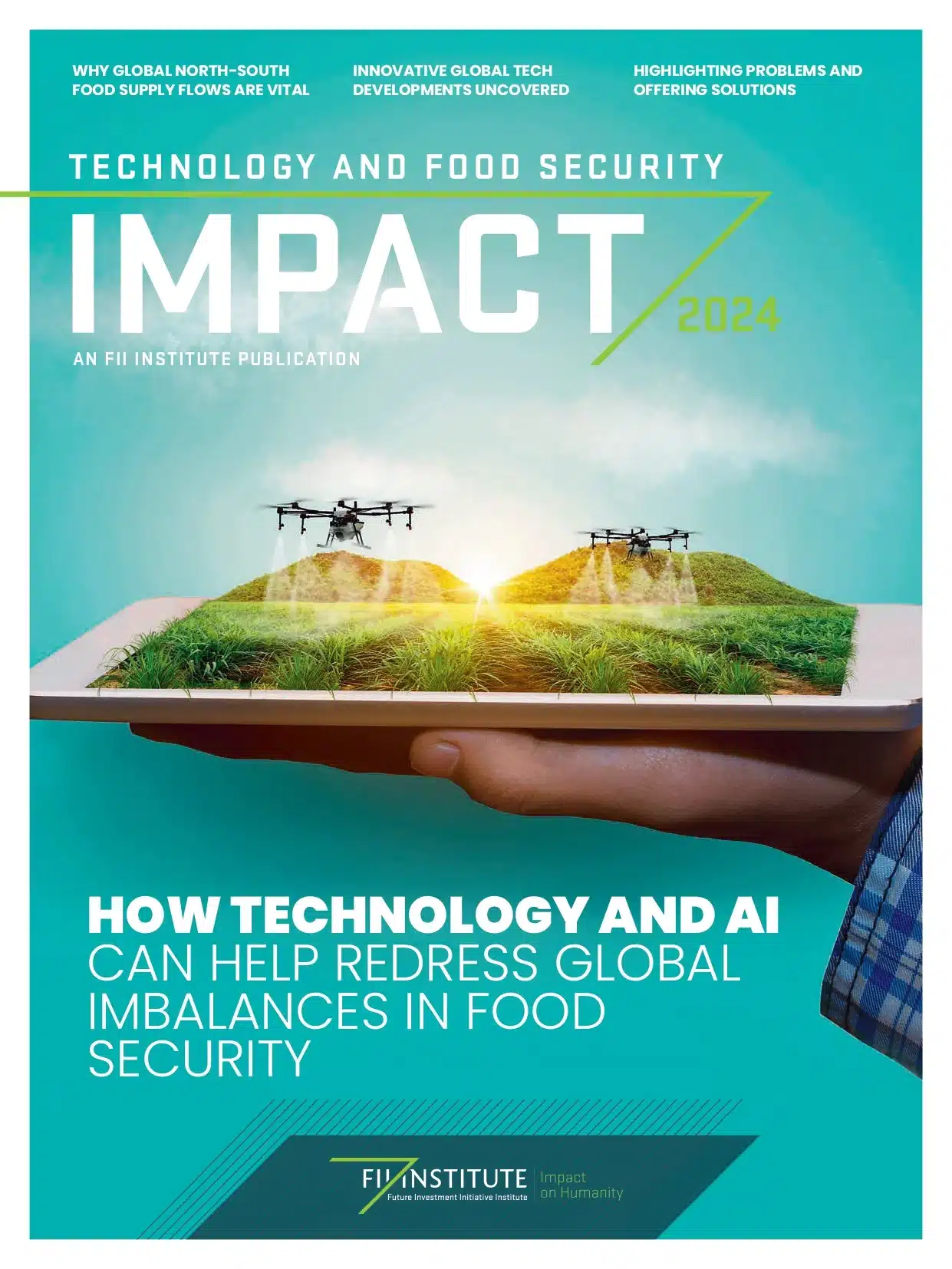
This comprehensive report delves into the transformative impact on tech-driven solutions and sustainable practices such as precision farming, AI analytics, and blockchain on agriculture in the face of climate change and population growth.
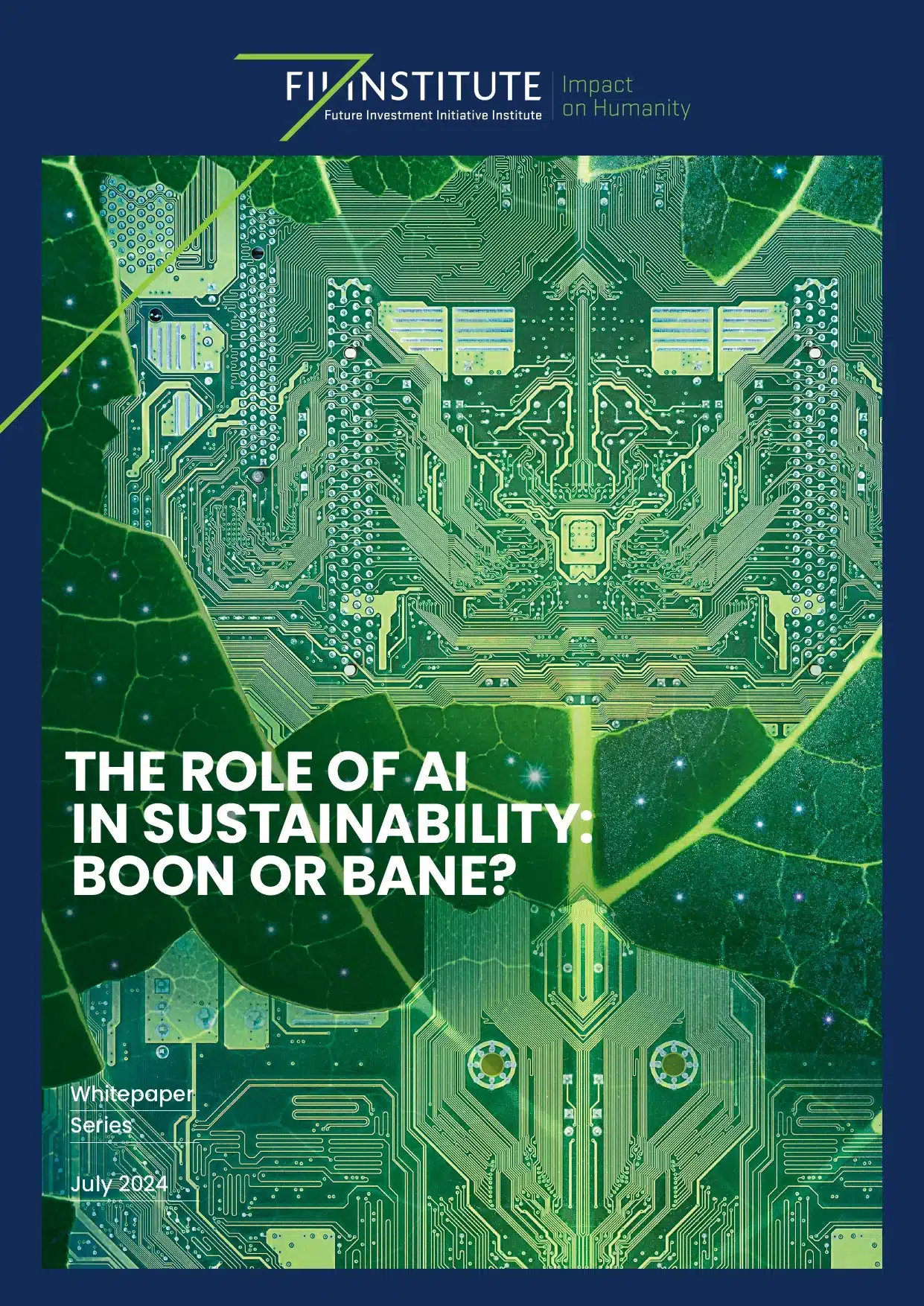
As we grapple with climate change and dwindling resources, can artificial intelligence truly be the game-changer we need for sustainability? The Future Investment Initiative (FII) Institute, in collaboration with Arthur D. Little, presents a groundbreaking white paper exploring the pivotal role of Artificial Intelligence (AI) in driving sustainability.
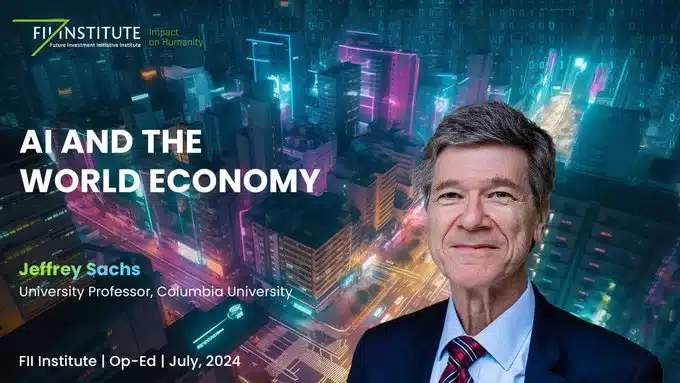
In his op-ed, Professor Jeffrey Sachs explores the transformative power of technology through the ages, culminating in the current era of digital globalization driven by artificial intelligence. Sachs outlines the profound societal shifts brought about by past technological breakthroughs and emphasizes the urgent need for economic and political institutions to adapt to the rapid advancements in AI.
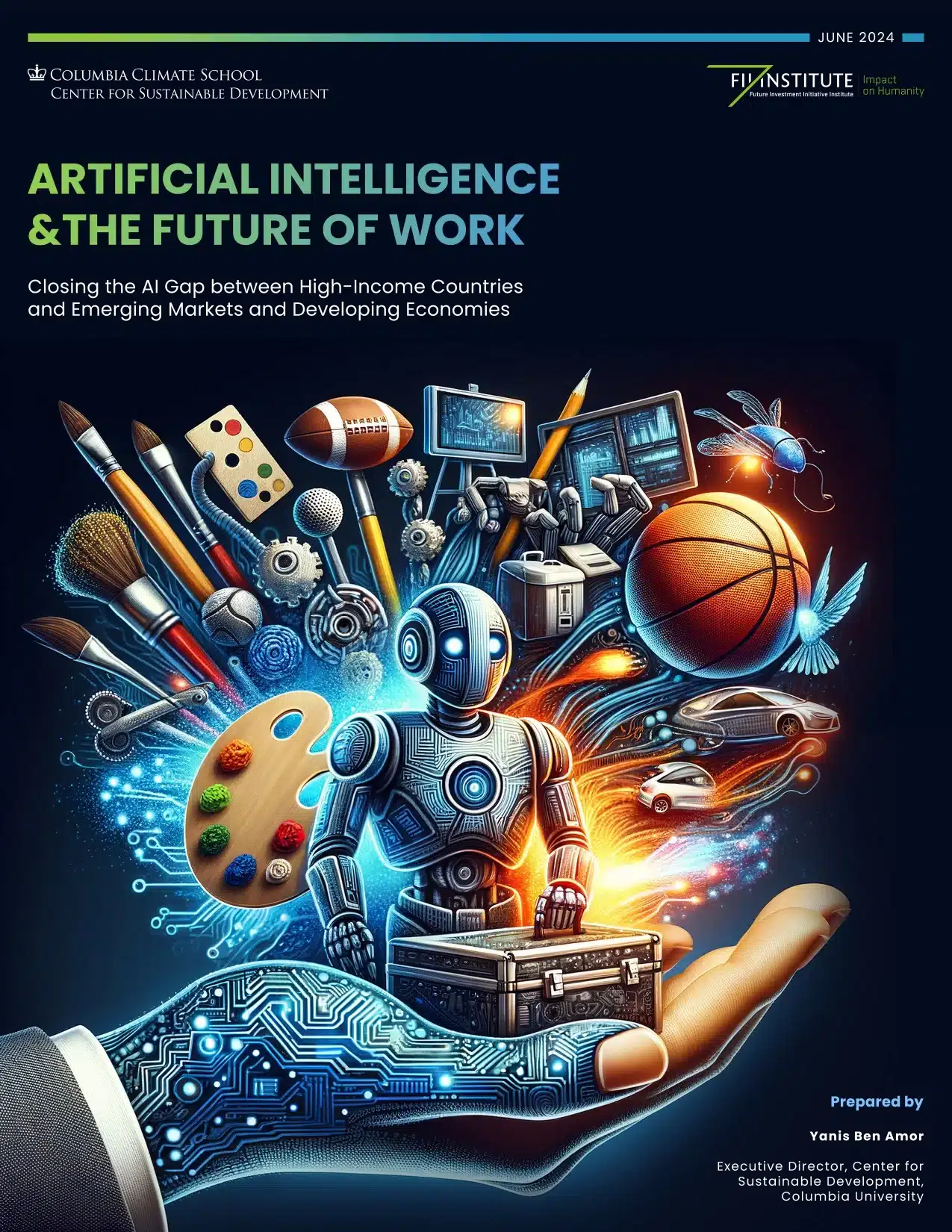
Explore how emerging technologies like AI are reshaping the way we learn, teach, and work, emphasizing the importance of preparing for the future job market. It aims to bridge the digital gap between regions and ensure that all learners and educators have access to the latest advancements in AI.
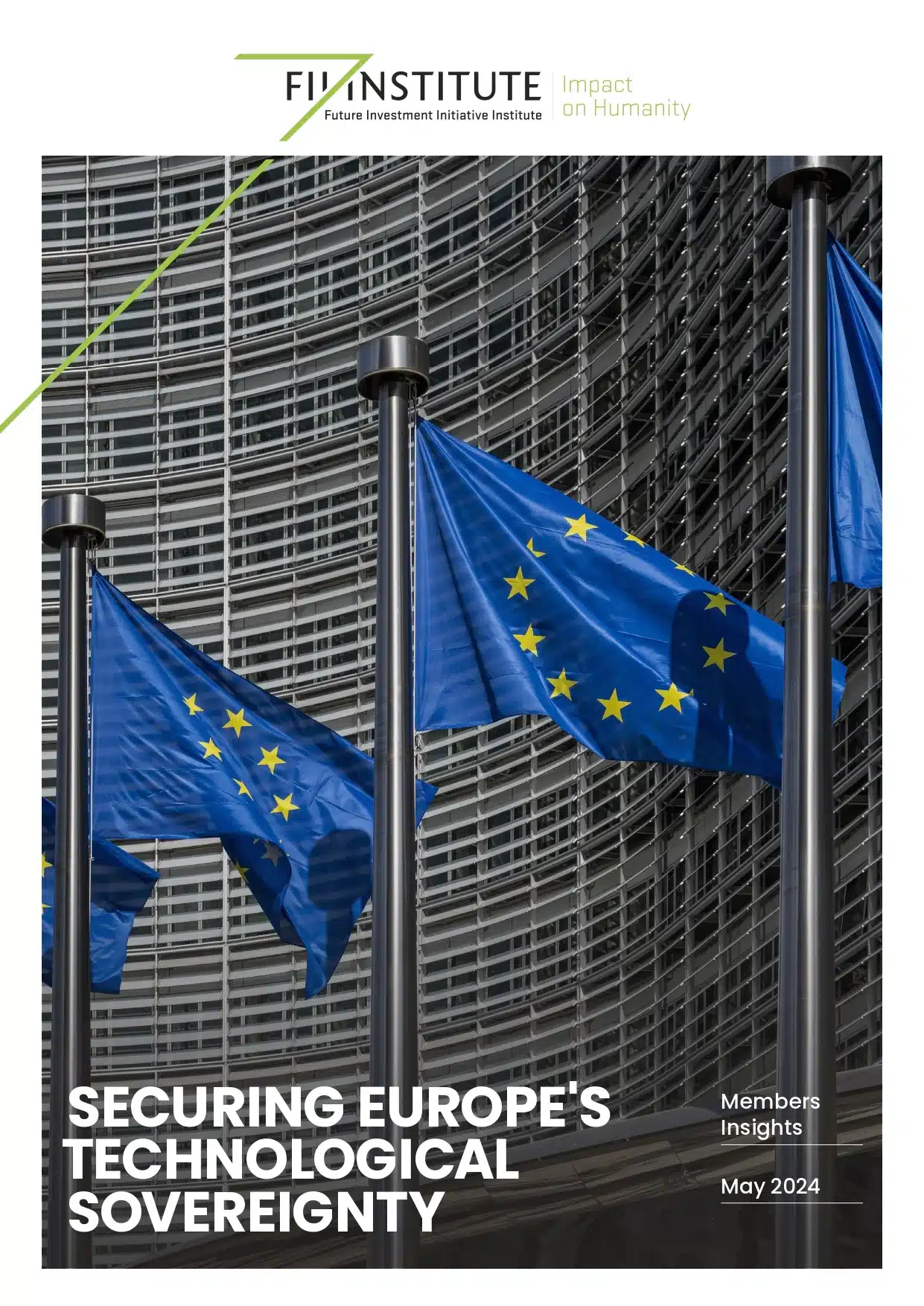
Learn more about the transformative power of entrepreneurship, investment, and cutting-edge technologies in securing Europe's technological future.

In our Impact Report “How AI Can Innovate and Improve ESG & Sustainable Finance Performance," we join forces with subject matter experts from our strategic partners at HSBC and Franklin Templeton and delve deeper into the complexities of sustainable finance and explore innovative solutions to navigate this intricate landscape.

State Street’s experts Mostapha Tahiri and Brian Franz present a comprehensive examination of the transformative possibilities that AI has when it comes to data-driven institutional investment decisions around the globe.
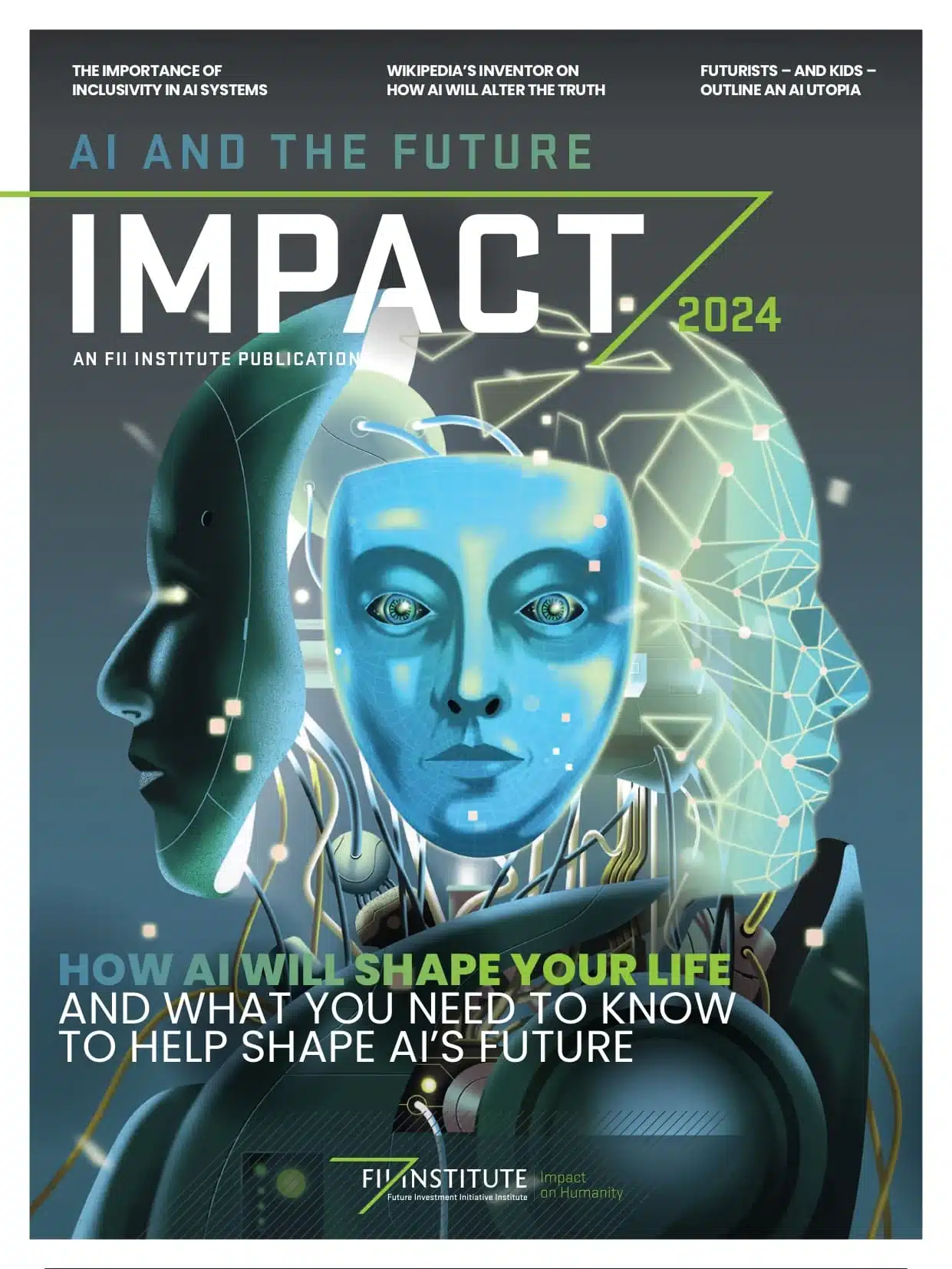
Our AI and the Future Impact Report explores the transition from the once speculative idea of artificial intelligence to its current reality as a transformative force in human-machine interaction, thanks to advanced generative AI models.
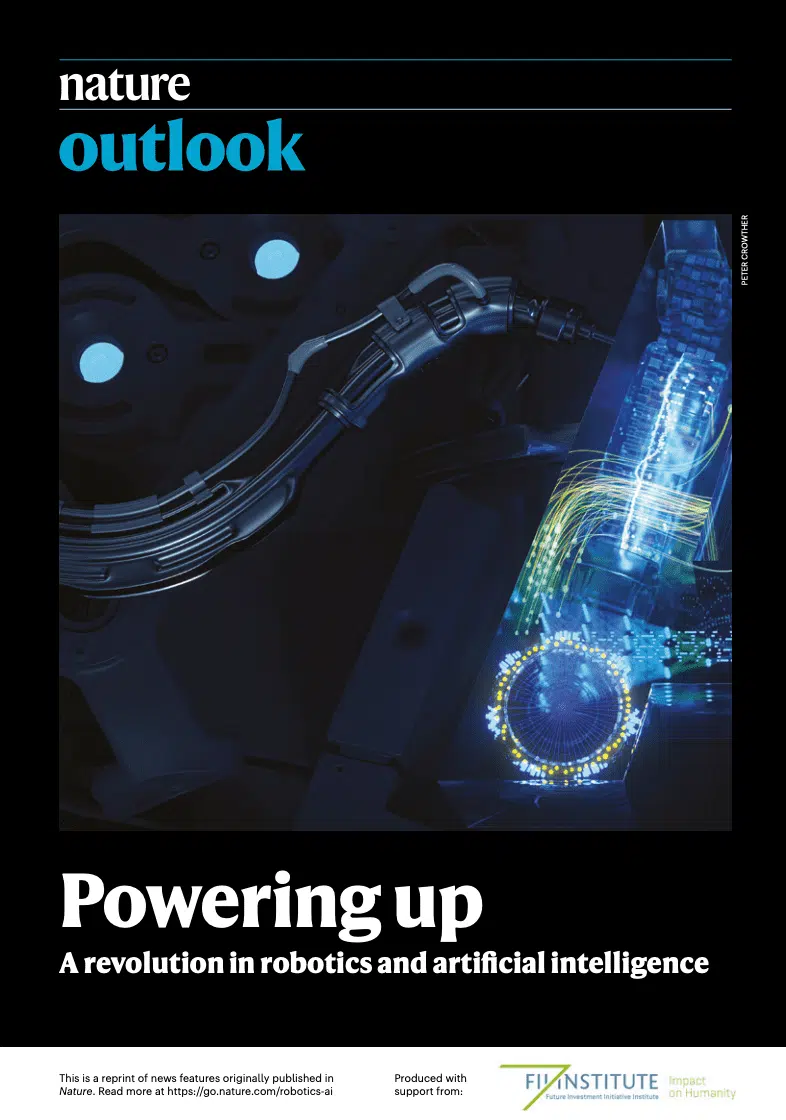
We are now living through the early stages of a similarly rapid revolution in robotics and artificial intelligence — and the effect on society could be just as enormous.
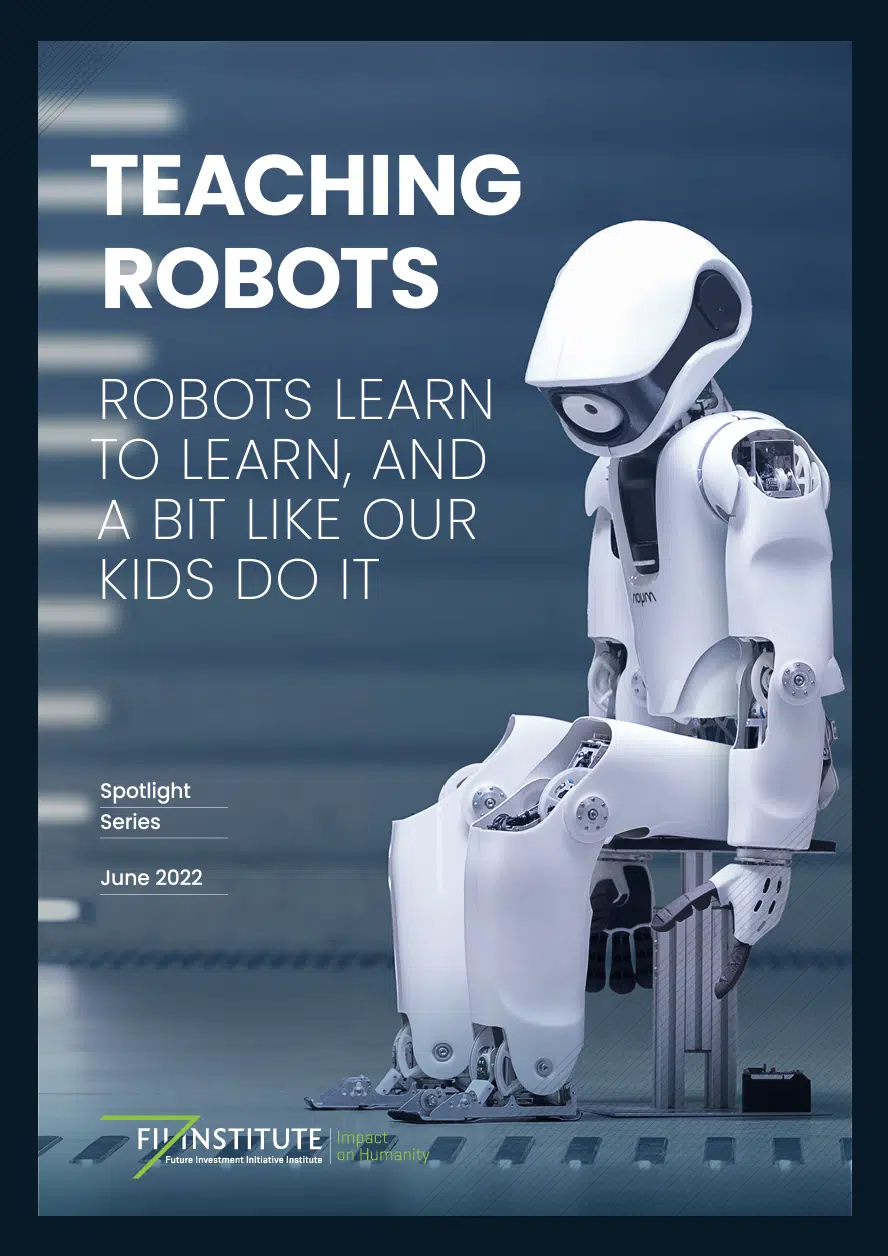
Can machines learn to walk and act in the real world in a similar way to how children do it? Starting from scratch, watching, copying, trying, failing, retrying? Learning to move is not as easy as learning to think – but the robots are getting closer.
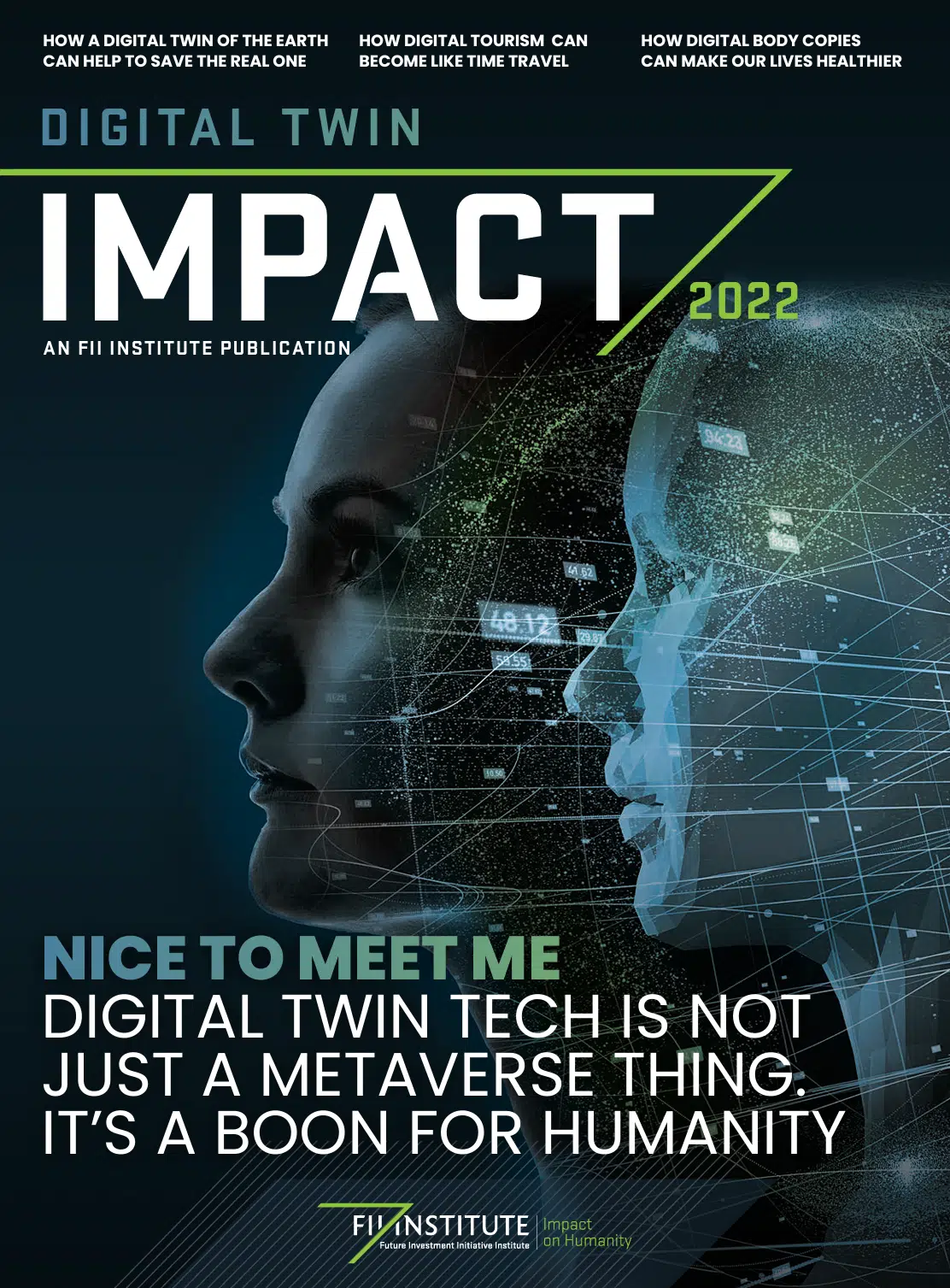
A digital twin is the virtual version of something that happens or exists in physical space – whether a process, person, or object. The digital twin operates in the same way as their physical relative, and in real time, coded as a virtual model to carry out the same tasks or think in the same way. The concept of the digital twin has now moved out of industry and into everyday life with the rise of the Metaverse, as we start to see digital twins of ourselves likely to live, work, and play within it.
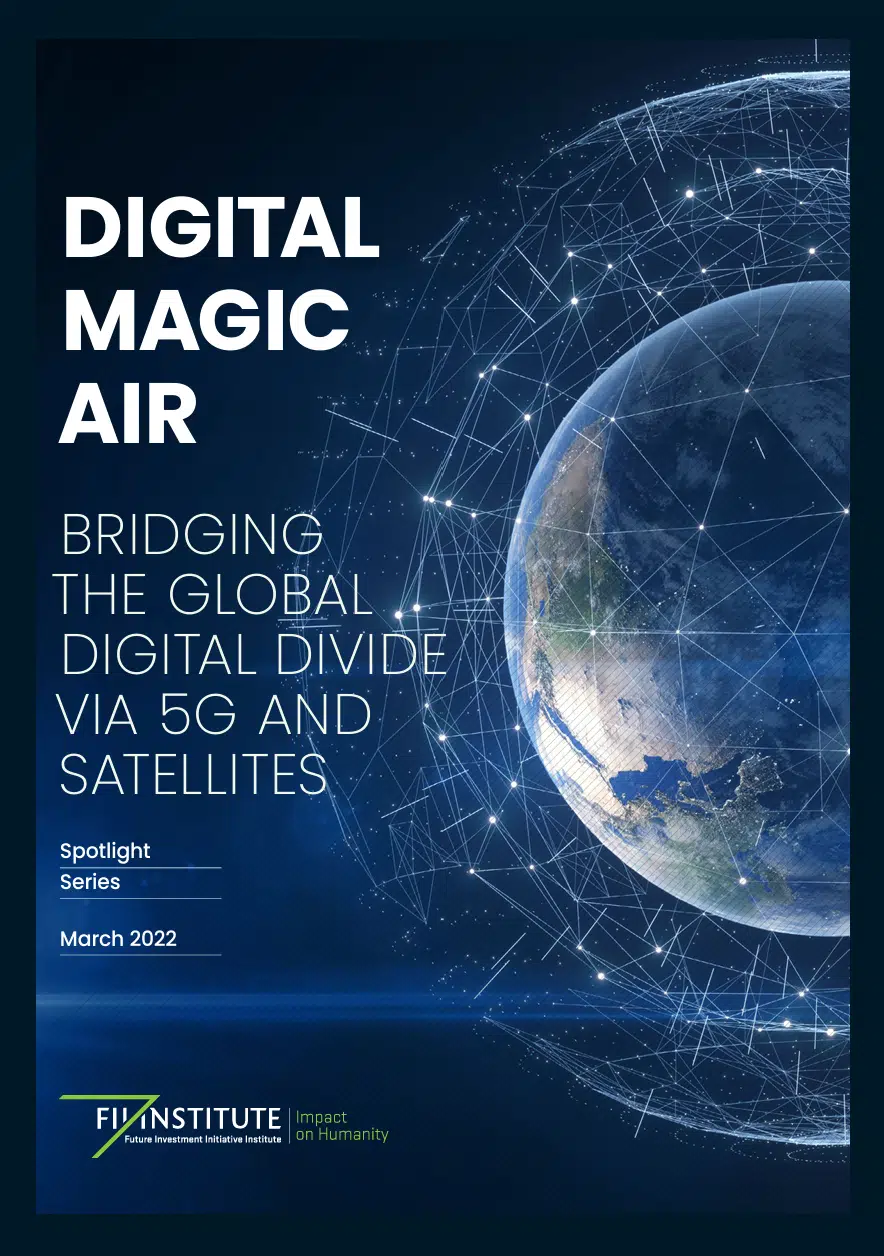
With 5G connectivity the air around us becomes magic – and our individual digital sphere will surround us continuously. And 5G even has the potential to be more than a data playground for the global elites. With a little help from space technology it can bridge the digital divide and create a level online playing field for humanity
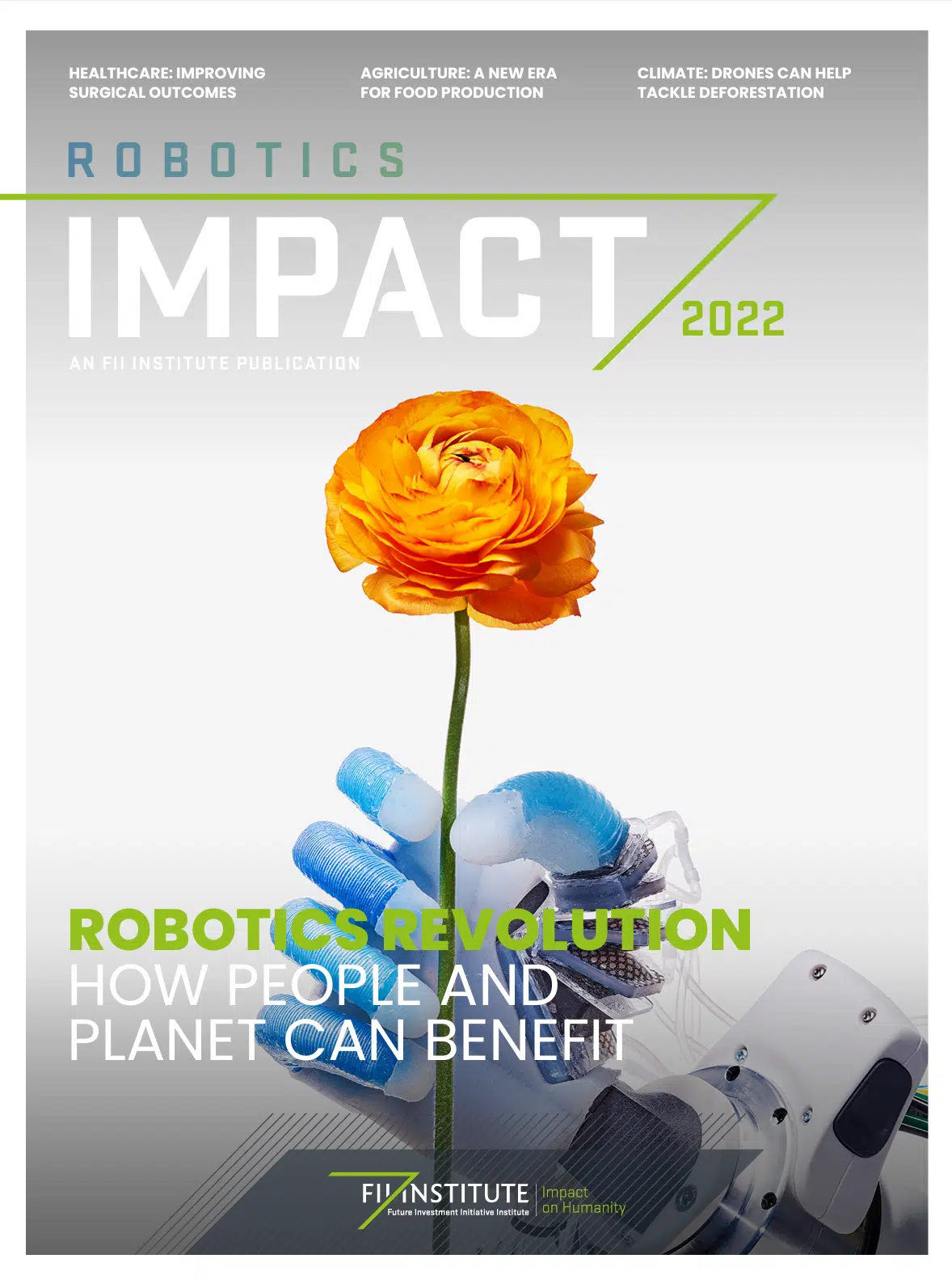
FII Institute publishes its fifth impact report as we enter a golden age for innovation in robotics. In the mid- 20th century, many scientists and writers envisioned the 2020s as full of highly intelligent robots of all shapes and sizes. While this might not have happened quite as imagined, things are now changing fast.